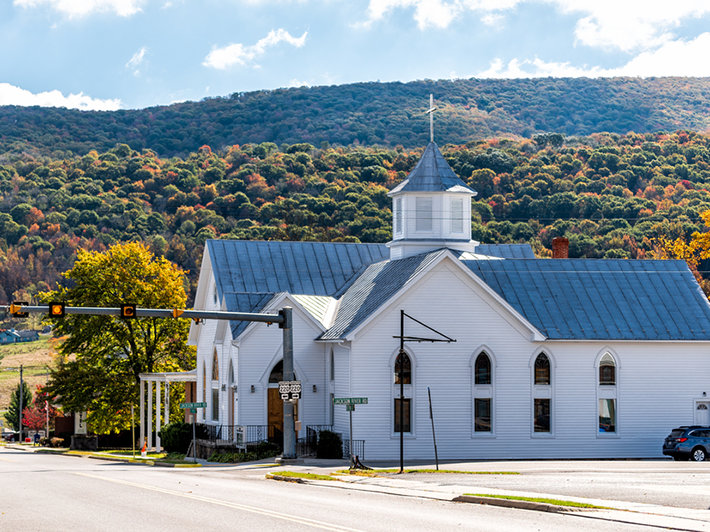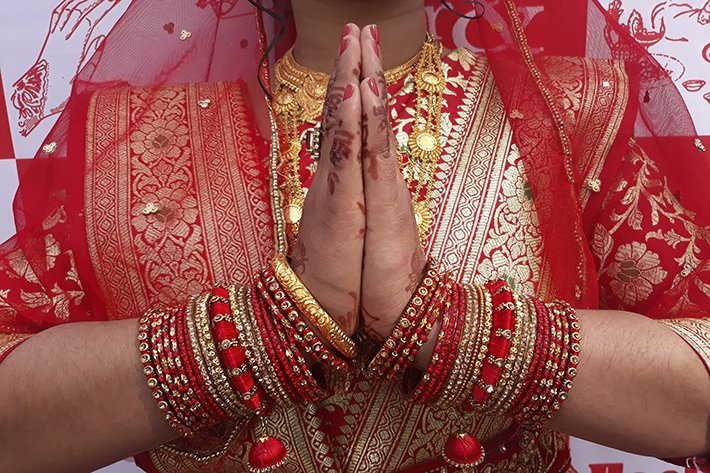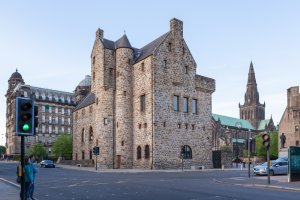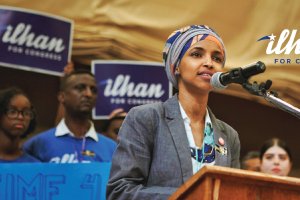Large tracts of Southern Appalachia, whose history has long been one of relative isolation, are experiencing a wave of religious diversity that is fast changing the region’s once largely Protestant character.

As the introduction covered in a recent series of articles in the Smoky Mountain News, Jewish and Islamic congregations are thriving, along with Orthodox Christian, non-Western and new-age faiths.
Although Baptist and Methodist churches still account for the vast majority of the houses of worship in the region that runs from West Virginia and Tennessee to parts of Georgia and Alabama, changes in population demographics, with residents arriving from other parts of the country and the world, has changed the nature of the denominations.
Like other religious institutions, Orthodox churches, synagogues, mosques and interfaith centers have their share of challenges—everything from attracting new worshipers and engaging with their communities to ensuring the security of congregants.
“But as they continue to establish and expand their presence here,” notes the Smoky Mountain News, “they’re also redefining what ‘keeping the faith’ means to modern mountain folk.”
Located in the town of Franklin, Mountain Synagogue has roughly 150 members who meet every Saturday at the local All Saints Episcopal Church—as they have been doing for more than 45 years.
The two congregations—Jewish and Episcopal—share a great deal of love and understanding. Members of both communities attend each other’s functions and outings.
The number of congregants at Mountain Synagogue typically shoots up during summer when people escaping the scorching heat of Florida pay the temple a visit.
While some have discovered Judaism here, many more are reconnecting with the faith of their childhood.
The rekindling of faith as a means of furthering self-understanding is a fairly common trend among people as they age, explains Mountain Synagogue’s president Harvey Morse.
But Morse believes another trend is also responsible for the synagogue’s growing membership: The increase in antisemitism around the world in recent years. Attacks on synagogues and on the faith itself have caused many Jews to be more observant and assertive.
“They just want to be able to have a voice in what is happening rather than just being a passive member,” says Morse. “They want to be proud of their religion and their heritage.”
The safety of worshipers is the synagogue’s top priority. To that end, Morse, a former law enforcement officer, is part of the Western North Carolina Jewish Security Task Force, along with Jewish leaders from three other synagogues in western North Carolina.
Part of Morse’s responsibility is to offer his community daily updates about antisemitic incidents that occurred the day before—a sign, he says, of how out of hand the phenomenon has gotten.
Open daily for five prayer sessions, the Islamic Center of Asheville is the only Muslim house of worship within a one-hour driving radius. Some devotees drive 90 minutes to get there. The mosque draws more than 100 faithful on Friday afternoons.
“As part of the Muslim faith, we are supposed to establish a center for prayer so we can come together wherever we go in the world,” says Timothy Garrett, an imam at the mosque who delivers the sermon following prayers. “Unlike Christian faiths, we usually only have one center where everybody comes to.”
A Florida native, Garrett is one of about 15 percent of the mosque’s members who wasn’t born into Islam but adopted it later in life, while stationed at a U.S. military base in South Korea.
Regular communal prayers not only serve as a reminder of the brotherhood of mankind, they are “also supposed to offer a consistent, direct connection to God,” Garrett says.
“Our real purpose is trying to make it to paradise in the next life, and God always wants us to succeed so he has told us to stop five times a day and kind of retune ourselves, remind ourselves why we’re really here,” he says.
Holy Resurrection Orthodox Church
This outpost of the Eastern Orthodox Church in Southern Appalachia, with a distinctly Ukrainian atmosphere, conducts its services mostly in English.
Father Anthony grew up in Georgia as a Methodist but leaned toward the Eastern Orthodox Church because it helped him understand the role of pride as a barrier to salvation.
“What I was used to as a Protestant in the South was an intellectual faith, perhaps an emotional faith,” he says. “What we’re doing in Orthodoxy is a deep tradition that has been honed over time for us and our salvation.”
“When you come to a community like this, it’s not just that the liturgy is beautiful,” Father Anthony says, “the community is beautiful. His calling to love one another, to be patient with one another, to give sacrificially to one another and to build each other up to the glory of God is part of the culture, a natural part of the culture.”
“And it’s a joy,” he adds. “It’s just a joy to serve this community.”
_______________
From its beginnings, the Church of Scientology has recognized that freedom of religion is a fundamental human right. In a world where conflicts are often traceable to intolerance of others’ religious beliefs and practices, the Church has, for more than 50 years, made the preservation of religious liberty an overriding concern.
The Church publishes this blog to help create a better understanding of the freedom of religion and belief and provide news on religious freedom and issues affecting this freedom around the world.
The Founder of the Scientology religion is L. Ron Hubbard and Mr. David Miscavige is the religion’s ecclesiastical leader.
For more information visit the Scientology website or Scientology Network.


